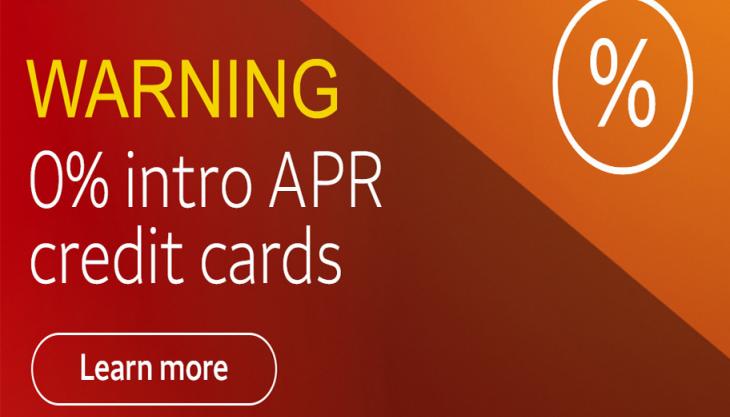Americans Are Using 0% Interest Credit Card Offers to Pay Credit Card Debt?
Submitted by Law Office Blogger on Tue, 08/19/2025 - 1:38pm

Americans are increasingly using 0% APR balance transfer credit card offers as a strategy to manage (or at least temporarily relieve) their credit card debt. The primary motivation is to save a significant amount of money on interest and to get out of debt faster. This practice is a cautionary tale of a temporary fix with intent to save on interest payments, consolidate debt, faster debt repayment and financial relief.
One of high-interest credit card debt can be a major financial burden, with interest charges eating up a large portion of a person's monthly payment. By transferring a balance from a card with a high APR (Annual Percentage Rate) to a new card with a 0% introductory APR, every dollar of the payment goes directly toward the principal balance. This can save hundreds or even thousands of dollars in interest, especially on large balances.
Without accruing interest for the introductory period, every dollar paid goes directly toward reducing the principal. The limited timeframe of a 0% APR offer (typically 12 to 21 months) creates a clear deadline for paying off the debt. This encourages people to create a payoff plan and stick to it, helping them to become debt-free more quickly than they would by just making minimum payments on a high-interest card.
The relief from immediate interest provides consumers with breathing room to stabilize their finances, especially as credit card debt in the U.S. recently hit record highs and many households are struggling with high inflation and increased cost of living. If a person has debt spread across multiple credit cards, a balance transfer card allows them to consolidate all of that debt into a single account. This simplifies their finances by giving them just one monthly payment to track, which can make it easier to stay on top of their bills and avoid late payments.
However, it’s important to note that these offers typically include a balance transfer fee (usually 3–5% of the amount transferred) and, after the introductory period, the interest rate can revert to a high standard APR if the balance isn’t fully paid off. Using these offers requires discipline and a repayment plan to maximize benefits and avoid additional debt burdens. In summary, Americans are leveraging 0% interest credit card offers as a strategy to save on interest and pay down existing high-interest credit card debt more efficiently amid challenging financial conditions.
Why Using 0% Interest Rates to Pay Credit Card Debt is Bad:
- High Interest After Promo: If you do not pay off your balance within the 0% introductory period, the remaining debt often starts accruing interest at a much higher, sometimes above-average rate. In some cases, interest can even be applied retroactively to the entire transferred balance.
- Balance Transfer Fees: Most balance transfer cards charge a fee of 3–5% of the amount transferred. For large balances, these fees can add up and reduce or negate the financial benefit of the 0% offer.
- Temptation to Accumulate More Debt: After transferring the debt, the credit limit on your original card is freed up. This can make it tempting to spend on that card again, leading to increased overall debt. Additionally, the 0% card itself can encourage overspending if not used responsibly.
- Short-Term Fix, Not a Long-Term Solution: 0% APR cards postpone, rather than solve, debt issues. Without a discipline and a clear repayment plan, you may find the underlying debt problem unresolved when the promotional period ends.
- Risk of Losing 0% Rate: Missing a payment or exceeding your credit limit can result in losing your 0% rate. The issuer may revert you to a high penalty APR immediately, often as high as 29.99% or more, plus late fees.
- Credit Score Impact: Opening a new card results in a “hard inquiry,” which may temporarily lower your credit score. If you apply for several offers or max out your new card, your credit utilization ratio and the average age of accounts may worsen your score further.
- Not All Purchases Qualify: Only balances transferred usually qualify for the 0% APR; new purchases may incur interest immediately, so it’s essential to read the offer terms closely.
- Qualifying May Be Hard: These offers are generally available only to people with good to excellent credit. If your credit is not strong, you might not be eligible or get favorable terms.
Debts Hurt! Got debt? Need help? Get started below!
Serving All of North Carolina
- Bankruptcy Attorneys Raleigh NC (North)
- Bankruptcy Attorney Fayetteville NC
- Bankruptcy Attorney Durham NC
- Bankruptcy Attorneys Wilson NC
- Bankruptcy Attorneys Greensboro NC
- Bankruptcy Attorneys Southport NC
- Bankruptcy Attorneys Wilmington NC
Bankruptcy Attorneys Raleigh NC (North)
6616 Six Forks Rd #203 Raleigh, NC 27615 North Carolina
Tel: (919) 847-9750

Bankruptcy Attorney Fayetteville NC
2711 Breezewood Ave Fayetteville, NC 28303 North Carolina
Tel: (910) 323-2972

Bankruptcy Attorney Durham NC
1738 Hillandale Rd Suite D Durham, NC 27705 North Carolina
Tel: (919) 286-1695


Bankruptcy Attorneys Greensboro NC
2100 W Cornwallis Dr. STE O Greensboro, NC 27408 North Carolina
Tel: (336) 542-5993

Bankruptcy Attorneys Southport NC
116 N Howe St. Suite A Southport, NC 28461 North Carolina
Tel: (910) 218-8682

Bankruptcy Attorneys Wilmington NC
116 N. Howe Street, Suite A Southport, NC 28461 North Carolina
Tel: (910) 447-2987
